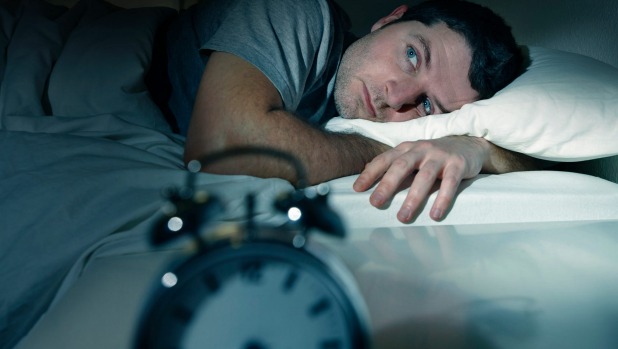
To remain active as you age, you need to sleep more! That sounds like an oxymoron, but it makes perfect sense. Sleep is your body’s way of decompressing and rejuvenating. Similar to turning off your car at night to avoid overheating the engine and battery drain, your body also needs to turn off at night. But the truth is, we are a sleep-deprived nation, and this plays a significant role in our aging process. Lack of sleep strongly correlates with an increase in heart disease and a decrease of our immune system. Lack of sleep also makes us age quicker and gain more weight because it encourages us to overeat. Research from the National Sleep Foundation found 70 percent of American adults are sleep deprived, or average less than six hours of sleep per night. Sleeping less than eight hours on any given day can lead to, among other things, a weakening of our cognitive processes (i.e. we lose our mind!) When we are sleep-deprived, we also gain weight because of the lower levels of the appetite-regulating hormone, leptin, making us consistently hungrier. Some people can fall asleep the second their head hits the pillow while many toss and turn all night. Others avoid sleep because it’s counterproductive to getting work tasks done (I’m often guilty of this.) And then there are those that purposely neglect sleep in favor of play.
Buried deeply inside the center of our brain is something called the pineal gland, which senses our exposure to light and dictates our circadian rhythm. This is what balances our sleep and wake cycles. Scientific research has shown that the pineal gland plays a major role in aging. Young pineal glands placed in aging mice reversed aging, and an old pineal gland placed in young mice accelerated aging. A healthy pineal gland produces melatonin, which regulates sleep, among other things. The neurotransmitter, serotonin converts to melatonin when the pineal gland senses “lights out”. As we age, our ability to produce melatonin declines and our receptors wear out. This is why a child can sleep twelve hours straight and the average adult sleeps just six hours.
Sleep provides more than rest and relaxation for our bodies, it restores our cognitive abilities. It allows us to consolidate the information we receive throughout the day, and then filter, process and store that information in our memories. Sleep performs the repair and maintenance we need to keep going without breaking down.
There are some simple tips you can use to achieve a deep and restorative nights sleep.
• Keep it Dark! Try to keep the room as dark as possible, especially avoiding any blue lights. This signals your pineal gland that its day time and keeps you from falling into a deep restorative sleep.
• Nix the electronics! That means no laptop or smart phone use 30 minutes before going to bed. The bright lights and electromagnetic waves they emit, keeps you awake. If your smart phone offers “Night Shift” make sure you use that setting.
• Follow a routine. Set a standard time for sleep and wake cycle. This resets your circadian rhythm. (If you need an alarm clock to wake up, you need more sleep.)
• Eliminate noise. You can achieve this by using a “white noise” machine or foam ear plugs (available at most drug stores.)
• Have sex! Seriously, sex is good for sound sleep.
• Comfort. Splurge on smooth or silky sheets and a quality mattress. Most people spend 1/3 of their life in bed. Indulge!
• Avoid alcohol. While having a few evening drinks will relax you and make it easier to fall asleep, people that drink alcohol tend to wake up after a couple hours of sleep.
• Don’t drink warm beverages. Drinking hot tea or milk before bed takes the body 90 minutes to fully metabolize, which then makes a sprint to the bladder, just as you’re falling deeply asleep.
This is the first article I’ve ever written that I hope put you to sleep. Getting a deep restorative nights sleep is vital to your health and longevity. You simply can not have a good day, unless you have a good night.
About the Author
Dr. David Friedman is the author of the award-winning, #1 national best-selling book Food Sanity, How to Eat in a World of Fads and Fiction. He's a Doctor of Naturopathy, Chiropractic Neurologist, Clinical Nutritionist, Board Certified Alternative Medical Practitioner, and Board Certified in Integrative Medicine. Dr. Friedman is a syndicated television health expert and host of To Your Good Health Radio, which has changed the face of talk radio by incorporating entertainment, shock value, and solutions to everyday health and wellness issues.
Read more hereFOODSANITY.COM .